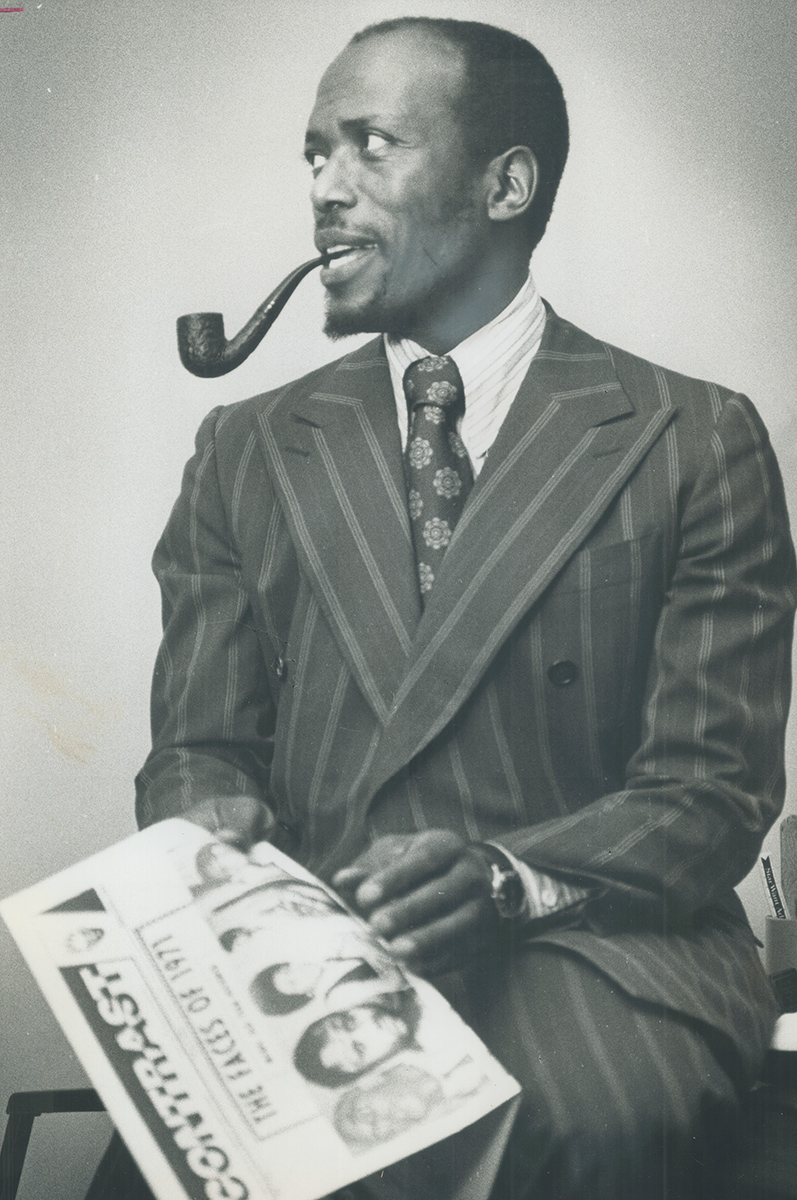School of Journalism introduces The Al Hamilton Award in Journalism

Al Hamilton publisher of the newspaper Contrast. (Photo by Boris Spremo/Toronto Star via Getty Images)
The School of Journalism is delighted to announce the Al Hamilton Award in Journalism. The scholarship will provide an annual award of $1,000 to a self-identifying Black student in their first year of the undergraduate program.
Al Hamilton founded Contrast newspaper in 1969, Toronto’s first major publication to serve the Black community. With the newspaper, Hamilton gave young, Black writers the opportunity to write and have their work published. Among the names who wrote for the paper were Jojo Chintoh and Hamlin Grange. The publication highlighted events and Black businesses in the community and Hamilton provided a voice for the struggles the Black community was facing.
“Al Hamilton doesn’t have any connection to the University but he sure does to Toronto,” said School of Journalism Interim Co-Chair Gavin Adamson.
Hamilton also pushed for more diversity and representation at different publications, at a time when newsrooms were nearly exclusively made up of white reporters. He passed away in 1994.
The donor for the award is the Second Chance Scholarship Foundation. The Foundation’s president and co-founder, Rick Gosling, was a friend of Hamilton’s and had worked with him, and was aware of the challenges and accomplishments that Hamilton had faced as a Black reporter in Toronto. The Foundation wants to make sure the broader community doesn’t forget about the people who were at the forefront in knocking down barriers.
“When Al passed away, I felt it was so important for people not to forget his struggles and the struggles that the Black community has experienced in Toronto, in Ontario and in Canada,” said Gosling.
The School of Journalism also provided financial assistance in setting up the award, to ensure the scholarship could be awarded annually. In addition to the annual award, the School will offer an inaugural lecture, in collaboration with the Second Chance Scholarship Foundation, which is expected to take place in the Spring.
Adamson notes the award’s purpose of benefiting Black students is unique and “really important,” given that “this is not something that the University has traditionally done.”
“I think everyone at the School is really proud and happy to see that this money is being set aside for Black students who can make a case for their need for it.”